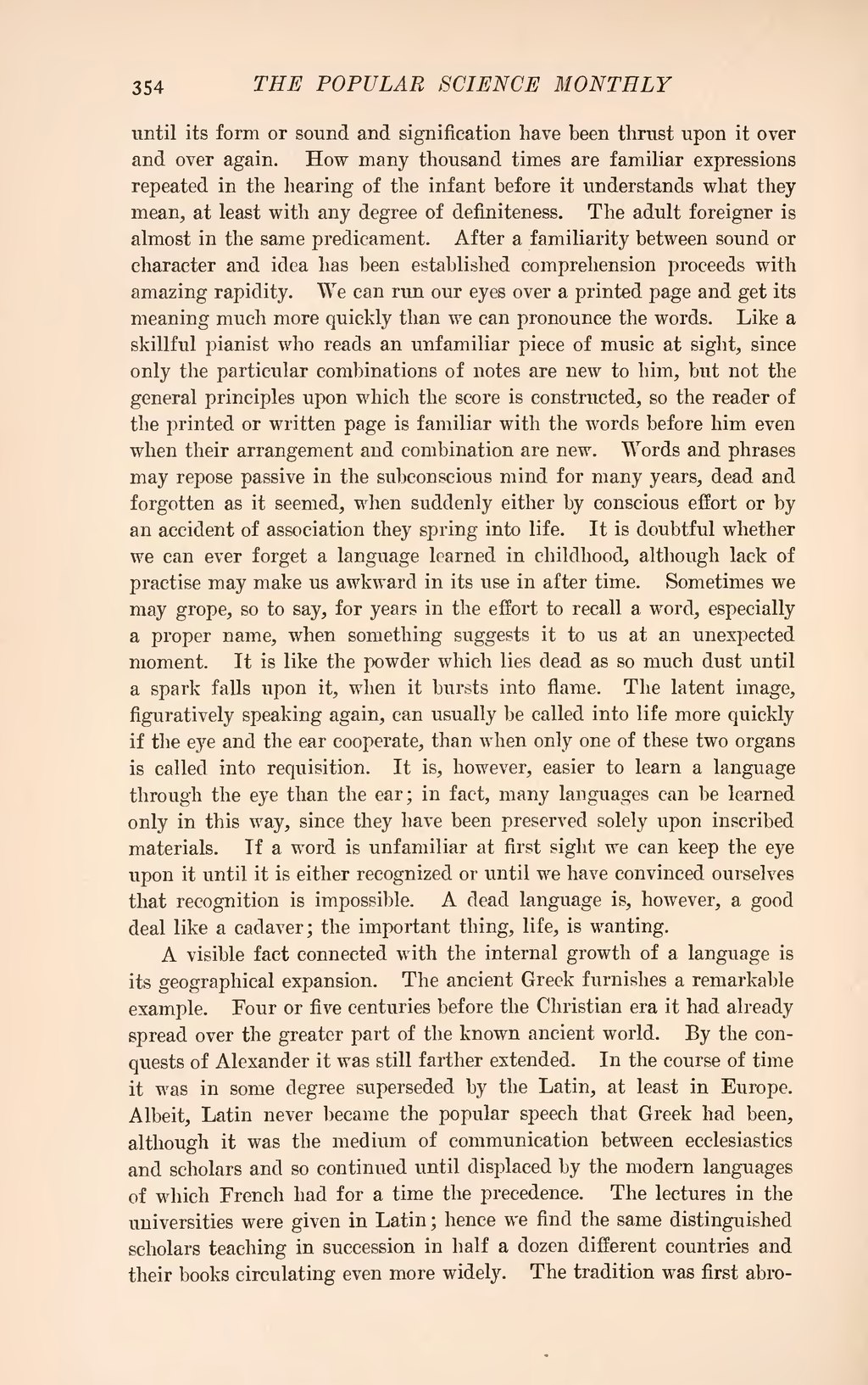until its form or sound and signification have been thrust upon it over and over again. How many thousand times are familiar expressions repeated in the hearing of the infant before it understands what they mean, at least with any degree of definiteness. The adult foreigner is almost in the same predicament. After a familiarity between sound or character and idea has been established comprehension proceeds with amazing rapidity. We can run our eyes over a printed page and get its meaning much more quickly than we can pronounce the words. Like a skillful pianist who reads an unfamiliar piece of music at sight, since only the particular combinations of notes are new to him, but not the general principles upon which the score is constructed, so the reader of the printed or written page is familiar with the words before him even when their arrangement and combination are new. Words and phrases may repose passive in the subconscious mind for many years, dead and forgotten as it seemed, when suddenly either by conscious effort or by an accident of association they spring into life. It is doubtful whether we can ever forget a language learned in childhood, although lack of practise may make us awkward in its use in after time. Sometimes we may grope, so to say, for years in the effort to recall a word, especially a proper name, when something suggests it to us at an unexpected moment. It is like the powder which lies dead as so much dust until a spark falls upon it, when it bursts into flame. The latent image, figuratively speaking again, can usually be called into life more quickly if the eye and the ear cooperate, than when only one of these two organs is called into requisition. It is, however, easier to learn a language through the eye than the ear; in fact, many languages can be learned only in this way, since they have been preserved solely upon inscribed materials. If a word is unfamiliar at first sight we can keep the eye upon it until it is either recognized or until we have convinced ourselves that recognition is impossible. A dead language is, however, a good deal like a cadaver; the important thing, life, is wanting.
A visible fact connected with the internal growth of a language is its geographical expansion. The ancient Greek furnishes a remarkable example. Four or five centuries before the Christian era it had already spread over the greater part of the known ancient world. By the conquests of Alexander it was still farther extended. In the course of time it was in some degree superseded by the Latin, at least in Europe. Albeit, Latin never became the popular speech that Greek had been, although it was the medium of communication between ecclesiastics and scholars and so continued until displaced by the modern languages of which French had for a time the precedence. The lectures in the universities were given in Latin; hence we find the same distinguished scholars teaching in succession in half a dozen different countries and their books circulating even more widely. The tradition was first abro-
